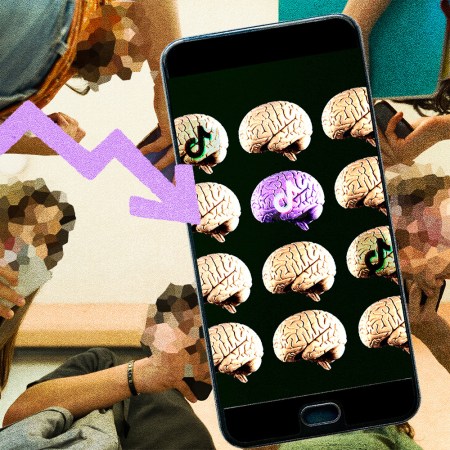What’s the first thing that comes to mind when you think of creatine? The supplement has long been lumped in with meathead mythology — blame the branding — but the science tells a different story. As it turns out, creatine is one of the most rigorously studied and broadly beneficial on the shelf.
“People mostly know creatine for muscle building,” says Dr. Bill Kapp, CEO of AI-powered longevity center Fountain Life, “but what many don’t know is that it also helps the brain by boosting brain energy, memory and clear thinking.”
What’s Creatine, Again?
Creatine is a compound made from three amino acids, naturally found in the muscles and brain. While most nutrients are best absorbed from whole foods, creatine shows up in only small amounts in red meat, fish and poultry — which means even meat eaters may fall short.
“You’d have to eat a lot of steak every day to match the doses used in brain studies,” says Kapp. For anyone feeling low on energy, especially those who avoid animal products, supplementation can offer a meaningful boost.
Research shows that creatine may improve short-term memory, intelligence and reasoning. Other data demonstrates that creatine can be neuroprotective and beneficial for treating depression and anxiety. One small study of women, for instance, revealed that combining creatine supplementation with anti-depressants improved their mood within four weeks.
The Charge by InsideHook
A wellness newsletter to help you move better, think clearer and stay in the game longer. One email every Monday — we’re building habits, not chasing hacks.
Creatine’s Top Benefit
Above all else, oral creatine enhances energy production, which is why it’s associated with fitness and sports. But it’s not all about biceps and abs — the brain also needs a lot of energy to function optimally. “Creatine helps make more energy, especially when you think a lot,” Kapp says. “This is good for people who don’t sleep enough, like students, or workers who need to stay focused.”
Emerging research indicates that creatine might improve cognitive functioning after a bad night of sleep. Part of the reason for this is that when we use a lot of energy — let’s say, from staying up all night — nerve cells consume molecules such as adenosine triphosphate (ATP) that are responsible for producing energy.
“If there is a shortage because consumption is high, creatine will help to regenerate these energy molecules quickly,” explains Ali Gordji-Nejad, a scientist who co-authored the study. “It’s like your empty tank is quickly refilled with creatine.” He also suspects that creatine improves performance by preventing oxidative stress and hyperacidity, which have been linked with depression and other neurodegenerative diseases.
How to Dose
It’s worth noting that the participants in Gordji-Nejad’s study were given 20 to 30 grams of creatine, which, he notes, “is a huge dose.” Currently, the recommended daily amount is three to five grams. Higher doses can cause stomach pain and strain the kidneys. “We may need to wait longer for further studies to show whether lower doses have the same effect,” he says.
Kapp recommends only taking three to five grams of creatine monohydrate daily if you need an energy boost. Although creatine HCL is a newer product claiming to have higher absorption rates, creatine monohydrate has been on the market longer, studied thoroughly and is generally more affordable. And while earlier studies found that consuming caffeine alongside it can block creatine effects, updated research disputes this.
The real issue with combining creatine with a stimulant like caffeine is that it can cause stomach aches. Kapp suggests starting with a lower dose of creatine and increasing gradually to avoid potential side effects like bloating and water retention.
That said, if you have any preexisting kidney issues, speak with a doctor before you start spiking your smoothies and Gatorades with creatine. But if you’re otherwise healthy and feel like your tank is running low, it’s safe to say that creatine is not just for gains at the gym. Your brain deserves a boost, too.
The Charge will help you move better, think clearer and stay in the game longer. Subscribe to our wellness newsletter today.





















